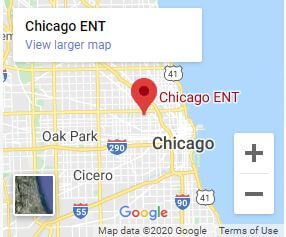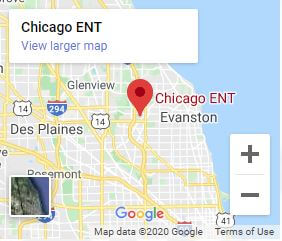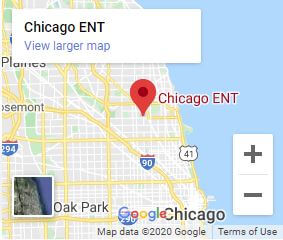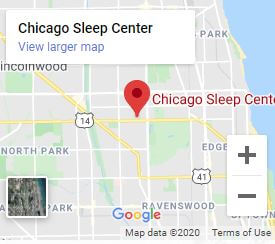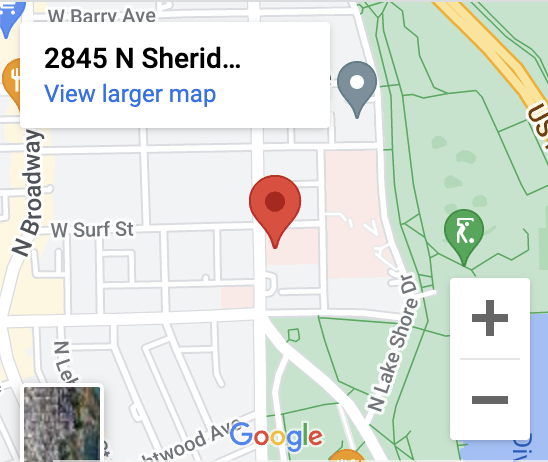For many people, getting a good night’s sleep can seem almost impossible to achieve. If you have a sleep disorder, your inability to sleep well through the night isn’t something you can control on your own.
Not sure how you would know if you have a sleep disorder or not? Keep reading for 5 signs you may have a sleep disorder!
1. It consistently takes you more than half an hour to fall asleep every night
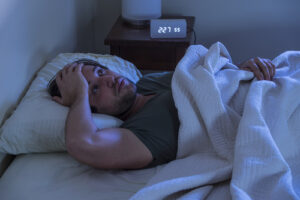
Tossing and turning every single night to fall asleep is not normal. In fact, if it takes you more than half an hour every night to fall asleep, this is a sign that you could have a sleep disorder.
Being unable to fall asleep makes it harder for your body to achieve the different stages of sleep it goes through at night. Every time you toss and turn or wake up, you could be interrupting one of the stages of sleep.
The problem with this is if you interrupt one stage, your body needs to reset and go through all the stages of sleep again. It takes time for your body to go through these stages, meaning you may never get to the deep, REM sleep cycle your body needs to repair muscles, skin, and other restorative functions.
2. You feel fatigued or exhausted during the day even after you’ve gotten seven to eight hours of sleep

There’s nothing worse than going to bed when you’re supposed to, sleeping through the night, and still waking up exhausted the next day. On average, most adults need anywhere between seven to nine hours of sleep every night.
Even as we get older, you still need about seven hours of sleep each night to function as you should. So if you’re getting between seven to nine hours of sleep each night and you’re still tired, this could be a sign of a sleep disorder.
Being fatigued all day makes it hard to concentrate and focus on the tasks that you need to complete throughout the day. Whether you’re a stay at home mom or you work in an office, being able to wake up feeling well-rested most of the time is necessary!
3. You need to take long naps during the day to stay awake

If you’re sleep-deprived, a nap during the day can sound like a lifesaver. But naps can sometimes cause more harm than good.
A short, ten to twenty-minute nap taken at the right time of day can help you become more alert, improve your performance, and even improve your mood. But naps can become problematic if you already suffer from poor sleep quality at night.
If you have insomnia or have difficulty falling asleep at night, napping during the day can make it harder for you to fall asleep in the evening. If you find that you need to take a nap during the day to stay awake, this is a cause for concern.
Talk to a doctor to determine what is causing this new reason for fatigue in your life, and to determine if you may have a sleep disorder.
4. You snore while sleeping at night

Everybody snores, so what’s the big deal, right? If you only snore once in a while, it’s probably not something you need to worry about.
But if you snore every single night, it can be a symptom of something more serious, like sleep apnea. The reason that snoring occurs is that the flow of air through your nose and mouth is blocked.
Why the airflow became blocked depends on lots of things. It could be because of throat and tongue muscles that are too relaxed, which allows them to collapse onto the airway.
It could be due to blocked nasal airways, which is more likely to occur if someone suffers from allergies or if they have a deviated septum.
If you’re overweight, you could have a bulky throat. If children have larger adenoids or tonsils, this could make them snore as well.
If you drink alcohol or use medications like muscle relaxers, they can make your throat and tongue muscles relax too much.
If you find that you’re snoring a lot, talk to your doctor. People who snore face an increased risk of depression, anxiety, heart disease, stroke, and even accidental injury.
Snoring can also diminish your quality of sleep, making you more likely to wake up throughout the night. If you want to wake up feeling refreshed in the morning, but you know that you snore, it could be taking its toll on your health.
5. You have another chronic health condition that keeps you up at night like depression or chronic pain

If you suffer from a chronic health condition like depression, anxiety, or chronic pain, you may find it harder to fall asleep at night. Some of the struggles with your sleep may be due to medication that you take for other health conditions.
With antidepressants, one common side effect that patients may experience is insomnia. Some patients may benefit from taking their antidepressant in the morning if their doctor approves it, or avoiding caffeine later in the day to reduce feelings of insomnia.
Other antidepressants may cause fatigue or drowsiness, especially if you are in the early weeks of treatment. The point is that if you are having difficulty sleeping and having other health conditions that already make it hard to sleep, tell your doctor.
They may be able to adjust the dose of any medications you’re taking or switch you to something with fewer side effects. Keeping your doctor in the loop about how a medication is affecting you will also allow you to figure out if poor sleep is due to a sleep disorder or an underlying medical condition.
Showing any of the signs above? It’s possible that you may have a sleep disorder.
The only way to know for sure is to schedule an appointment at Chicago ENT in Chicago, IL to discuss your sleep problems and find out if you may need a sleep study.











